CONTINGENCY OPERATING LOCATION Q-WEST, Iraq - Soldiers of the 40th and 1174th Transportation Companies, 395th Combat Service Support Battalion, 15th Sustainment Brigade, 13th Sustainment Command (Expeditionary), stationed out of Fort Lewis, Wash., and Memphis, Tenn., respectively, conducted a convoy mission which began here Dec.28 to Contingency Operating Location Speicher in order to turn in the part of the units' excess equipment.
The transportation of turn-in equipment, a part of the drawdown of U.S. forces in Iraq, was typically done with 13th ESC support, but 395th CSSB, stationed out of New Haven, Conn., began transporting the equipment themselves to save time, Maj. David Ryan, 395th's executive officer said.
"We are having our line haul units transport the equipment themselves in their own organic vehicles," Ryan, a New York native, said.
"By moving our own equipment, we save approximately seven to ten days waiting for the [transportation movement request] to be validated and supported by the 13th ESC."
The equipment turned in was no longer needed and may go to other units in the theater that can use it, Ryan said.
"[The] equipment ... might very well wind up in Afghanistan to support our fellow Soldiers there," he explained.
Weapons, night vision equipment, communications equipment, a cargo truck, and Humvee trailers were turned in on the mission for a combined total of 86 items by the two companies, according to Capt. Juan Villatoro, 40th Trans. commander and Capt. Chris Kirkman, 1174th Trans. commander.
"There's a lot of coordination that's involved," Kirkman, a Memphis, Tenn., native, said.
The units' supply noncommissioned officers were primarily responsible for preparing the equipment for turn in, ensuring the paperwork was completed correctly, and coordinating things between the various organizations involved, the commanders said.
The goal was to turn in all equipment required by order for turn in for one mission within seven days of receiving the order to do so, they said.
"[We are] trying to be a step ahead of the game, like Operation Clean Sweep, and avoid a chokepoint," Villatoro explained.
Kirkman said that the drawdown of equipment was phased, allowing for a more gradual turn in.
"If we waited till the end it would be a huge bottle neck of equipment to turn in at the last second," he said.
"As unit commanders, we need to be as lean possible and still be able to continue our wartime mission," Kirkman said.
The mission was only one of several missions needed to turn in all of the equipment.
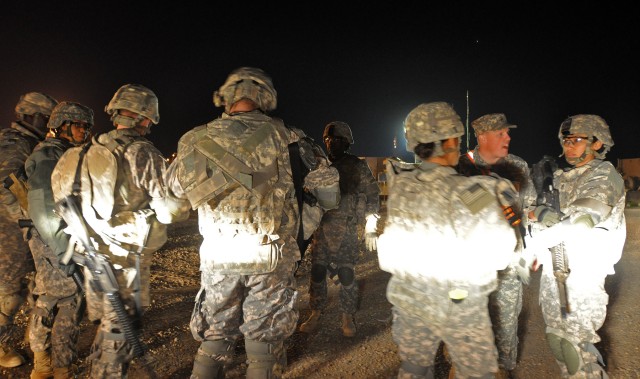
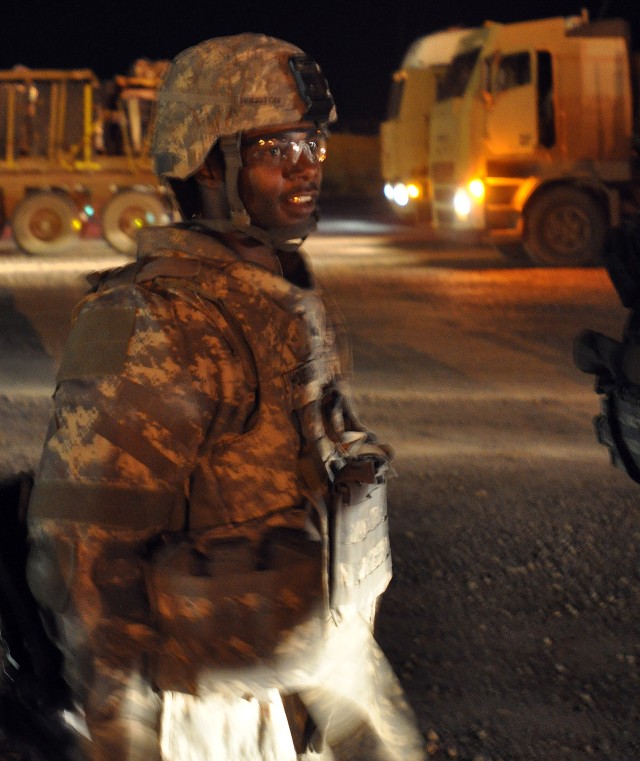
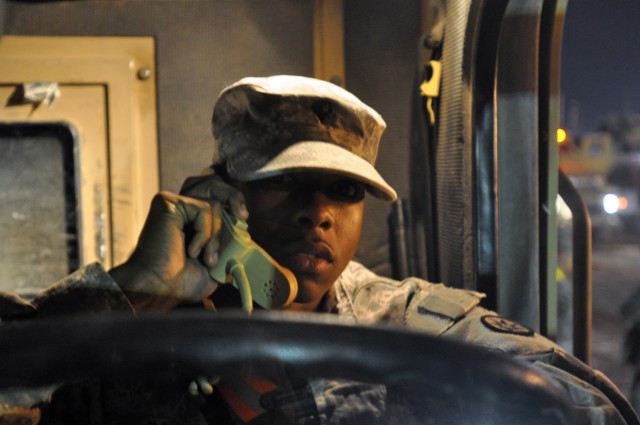
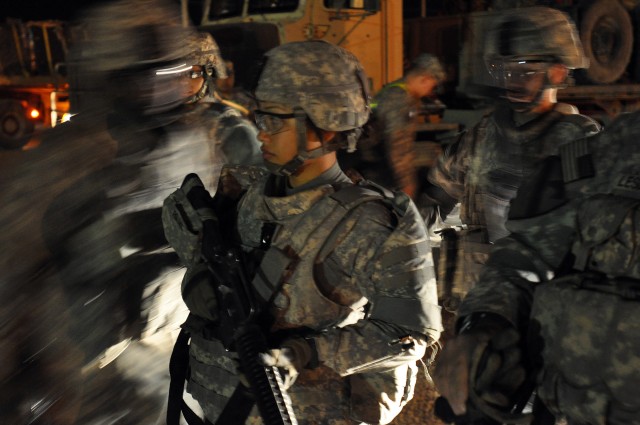
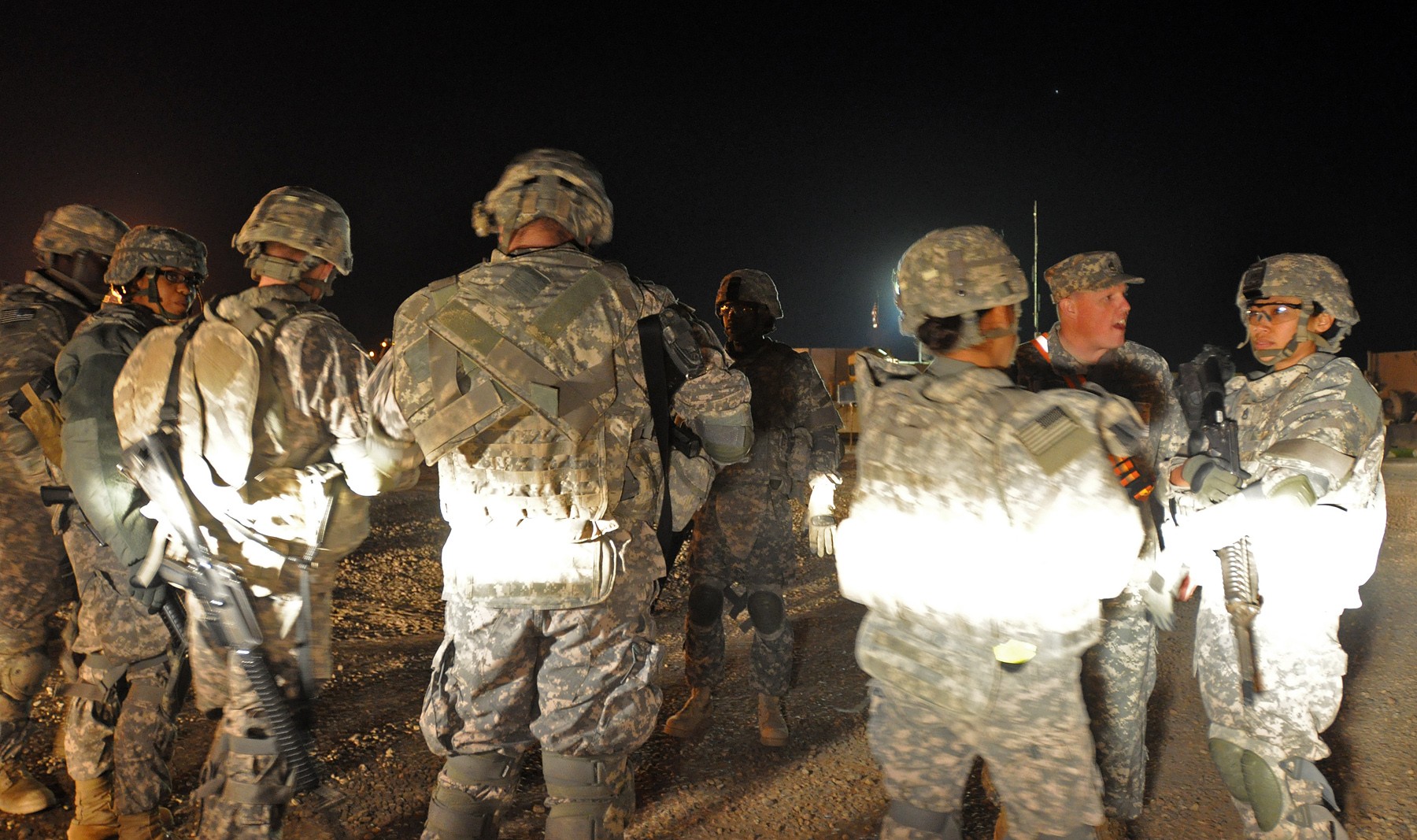
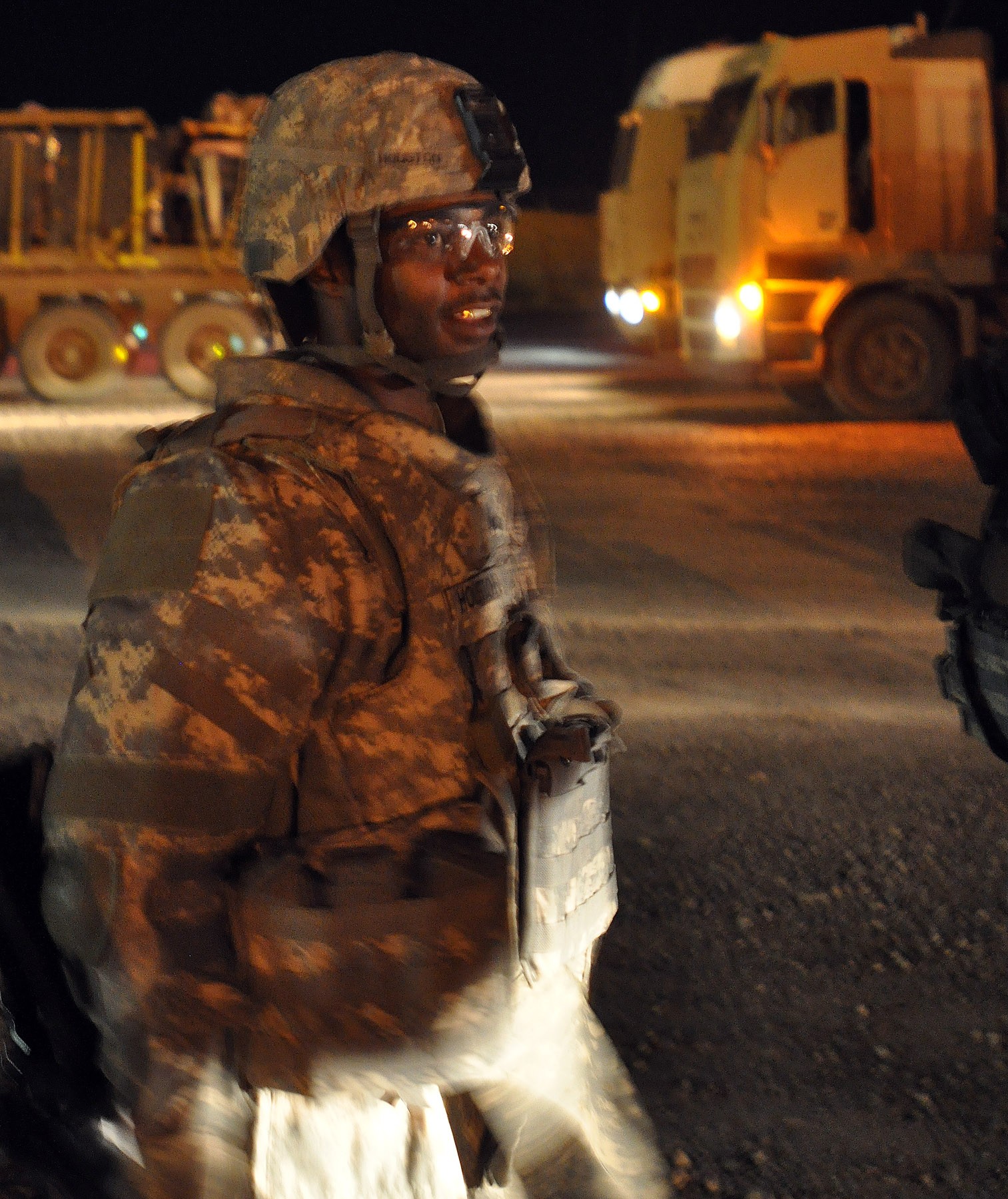
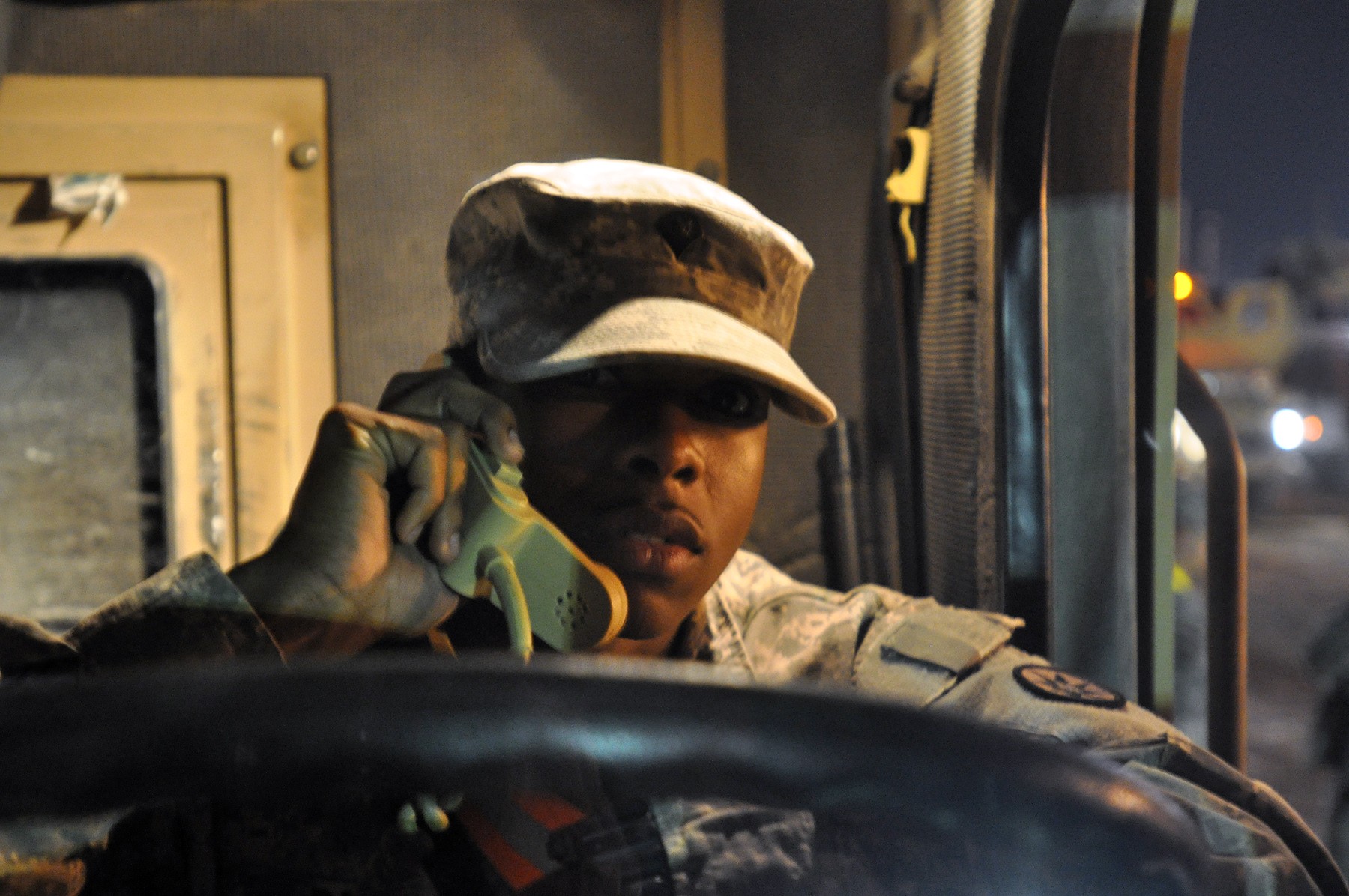
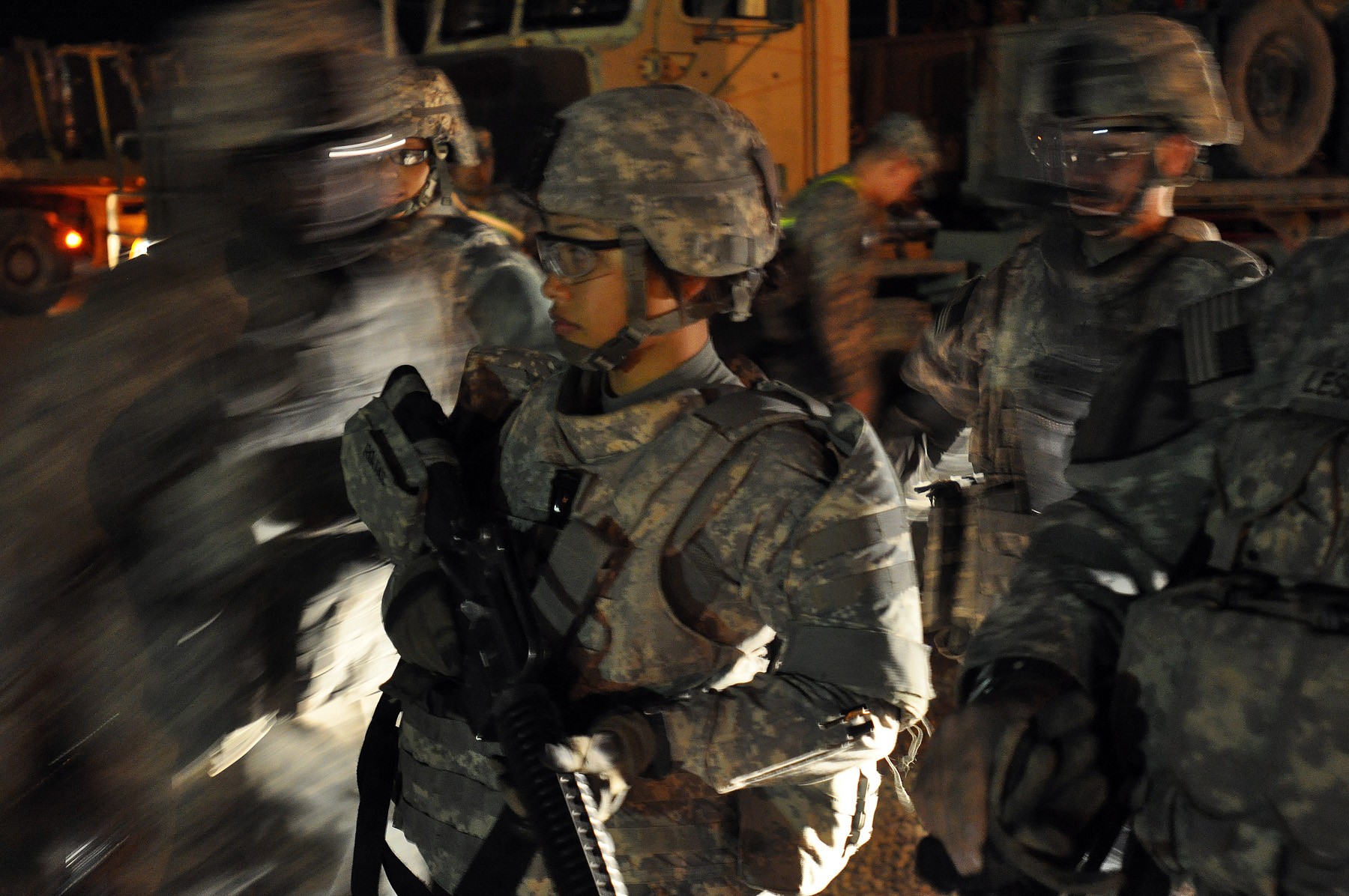
Social Sharing